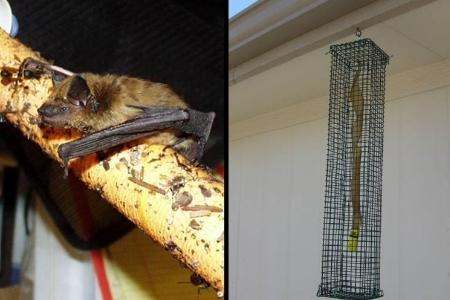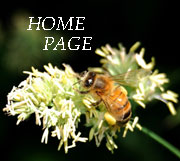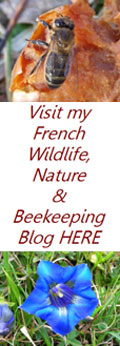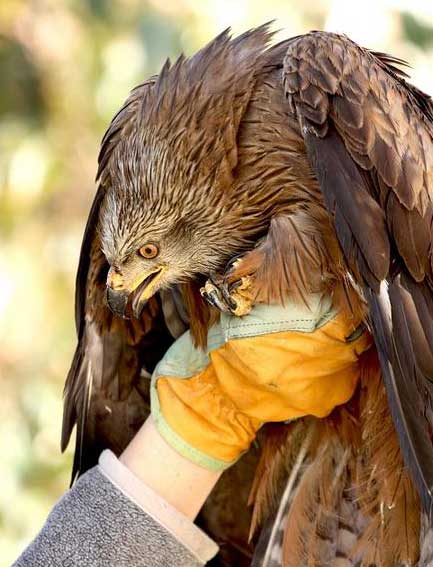
Our wildlife comes under constant threat as a direct result of human activity and although it's not possible to live without harming other creatures there are a number of simple areas where we can take preventative actions. We won't always remember, but little by little we will learn new habits and in doing so we will be saving lives.
Here we have some all too common issues but there will be many more you can think of I'm sure.
Discarded netting of any type is a nightmare for wildlife where ever it is, in the sea, in rivers, ponds, canals and lakes or on the land. There is no safe place for it.
One remarkably common occurrence is a snake getting entangled in netting, usually netting that has simply been left on the ground for clearing up later or perhaps thoughtlessly discarded. In this case it's a Grass snake but I've had cases involving several different species. It's usually fatal because the snakes actions in trying to escape tighten the nylon more and more.
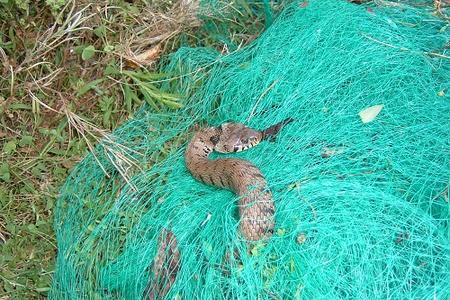
Containers can and frequently are death traps one way or another and I'm sure most people will have had some experience of this in one form or another.
Rainwater buts and containers need a means for creatures to escape, this can be as simple as a branch or any other piece of rough wood - it really does work and everything from lizards and small mammals to bees and other insects will use it to gain their liberty.
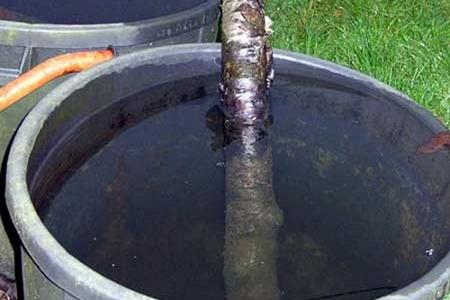
Increasingly plastic tubs, buckets and other containers are discarded in picnic areas and beaches or perhaps just thrown out of a car. This Ocellated lizard would have eventually died.
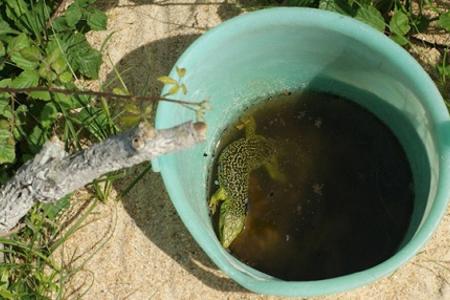
Even if it isn't yours if you see this type of thing lying around please consider picking it up and putting it in the right place.
Storm-water drainage pools, reservoirs and swimming pools invariably have smooth sides that prevent escape for any creature that falls in. Although many people won't be directly involved or responsible for storm water drainage pool it may be possible to have a word with your local Maire in France if you have one nearby that doesn't have escape facilities built in. Many have simple devices such as below that can be easily added and there are a number of types commercially available.
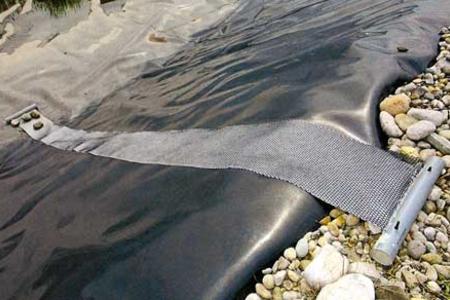
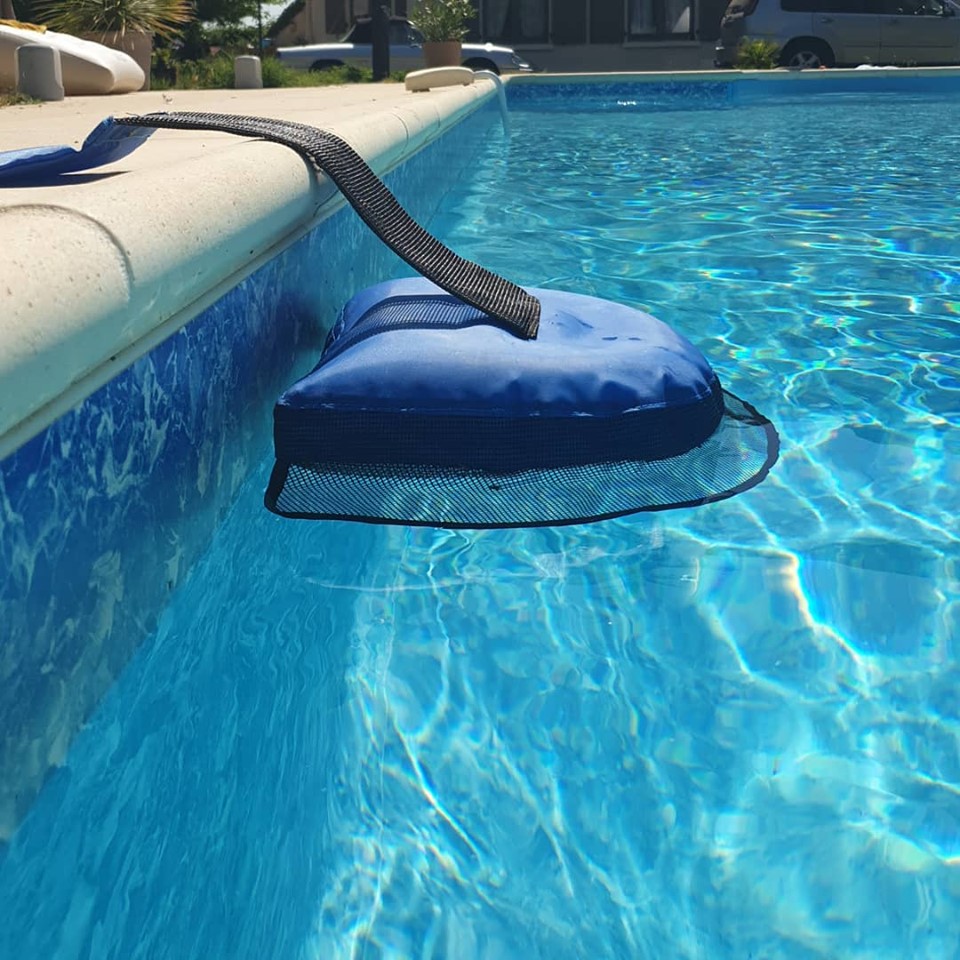
This baby fox in the photo below was luckier than most and was rescued from drowning just in time. Photo courtesy of Lydia Bourdeau and Pierre Mercier CSFSB
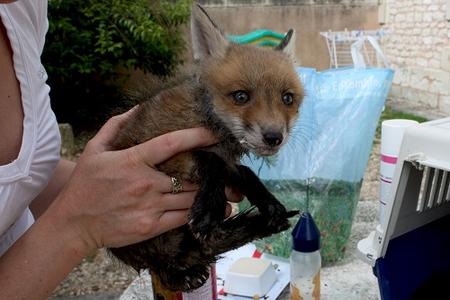
Barbed wire should be avoided where ever possible if an alternative can be found. It's rarely necessary and stock fencing or electric tape is often a viable alternative . Owls and low flying raptors are frequent victims, the Long eared owl below died.
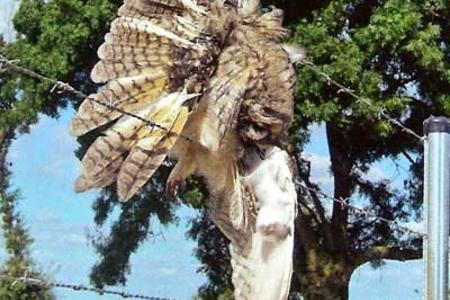
Fortunately this Red Kite, (below), was spotted entangled by barbed wire just in time and although it had a number of nasty injuries it recovered following treatment and was later released to continue its travels. This bird would have been on passage through Poitou-Charentes at the time. Photo courtesy of Lydia Bourdeau and Pierre Mercier CSFSB

Open ended pipes, posts and chimneys are another constant source of trouble for birds and mammals that get in and can't get out. Consider wire mesh, chicken wire or some other type of grill.
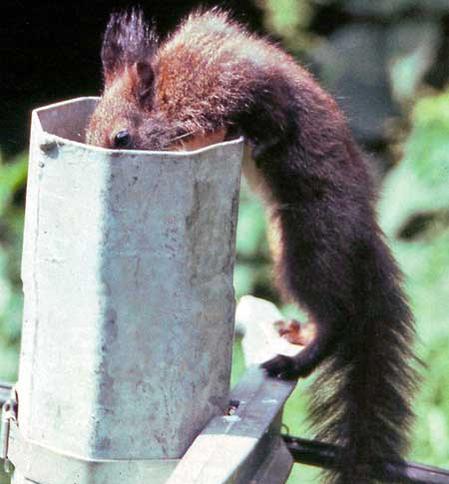
Agricultural twine is to be found dropped or discarded in various lengths all over the farming areas of France these days and so many species of bird and mammal take it to use as nesting material, frequently with disastrous consequences. If you see any on your travels please pick it up, take it home and dispose of it safely.
Debi Phillips found this young red squirrel dangling from a low branch in a tree, already dead. On close inspection, over 50% of the nesting material is plastic agricultural twine and its hind leg is caught fast where the plastic has wound round it.
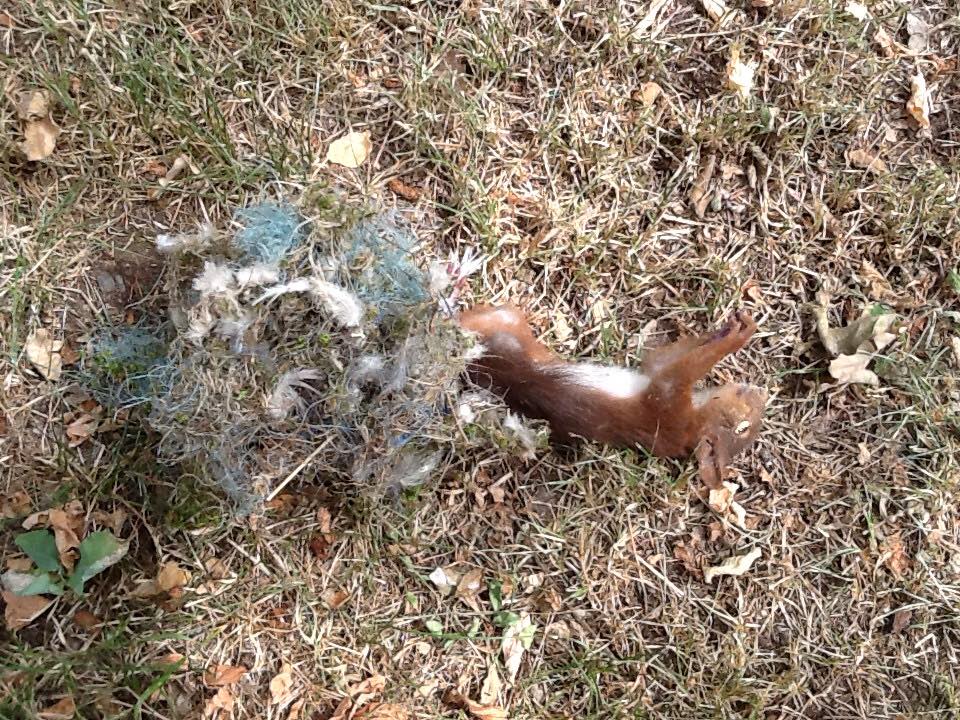
I've had many calls from people with swallows or bats stuck to fly papers where they have been used outside under a shelter or open barn where people sit to eat and drink. Finally an obvious solution "found" on Facebook, either enclose the sticky fly-paper with chicken wire or put it in a mesh bird feeder. This will at least help protect larger insects, bats and birds, although it's a rather pointless exercise to have such things outside.
